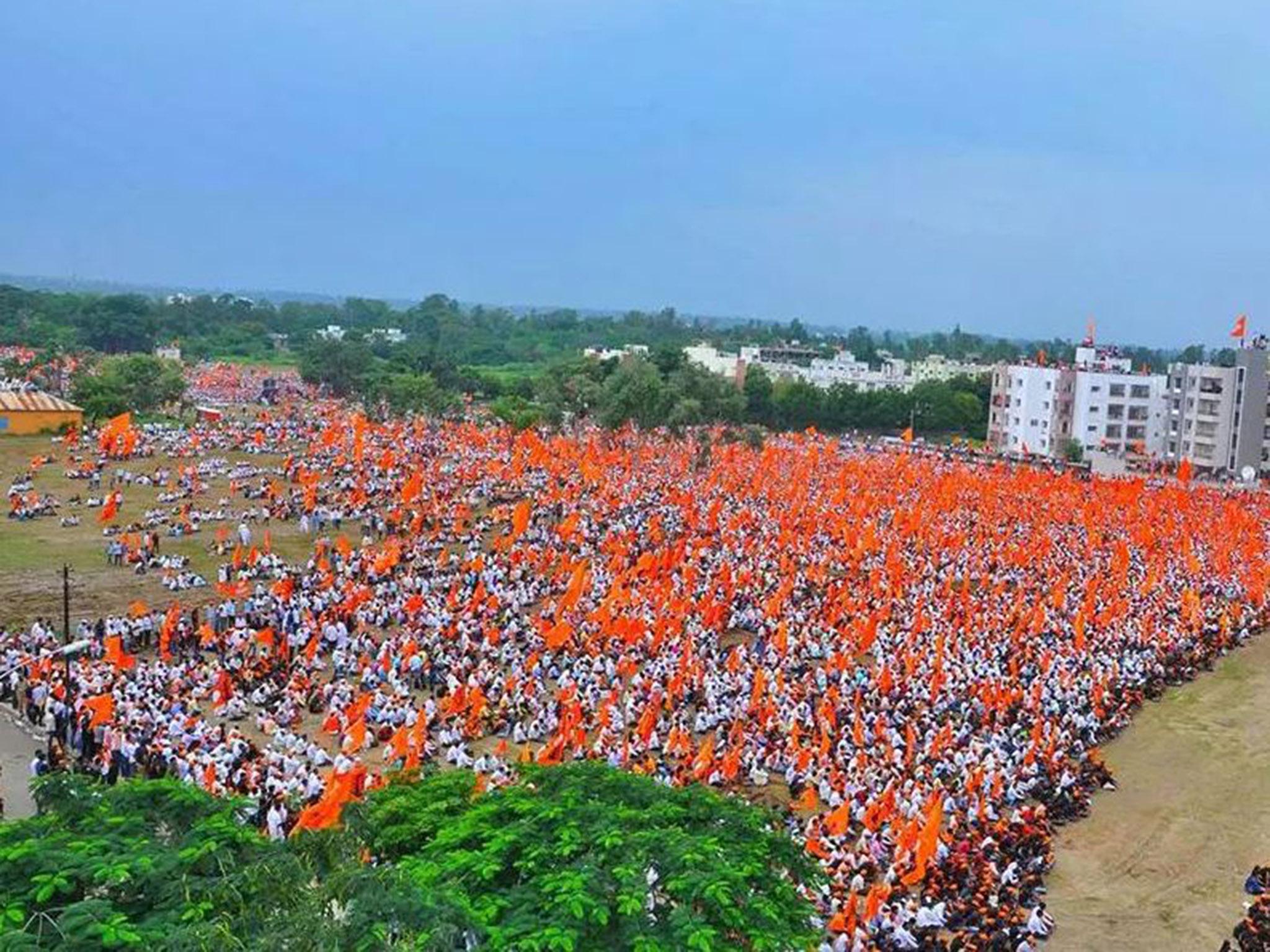India mass protests: Millions join silent marches to demand justice over rape and murder of teenage girl
Protestors say lower castes are being protected in a way that harms middle class citizens

Millions of protesters have joined a six-week silent march across India, demanding justice over the rape and murder of a teenage girl.
Three men of the Dalit - or “untouchable” - caste were accused of attacking a 14-year-old from the Maratha caste in the village of Kopardi in July, triggering widespread protests and debates relating to the position of Dalits in Indian society.
The march will congregate in the state capital of Mumbai at the end of October - where 10 million are expected to join the demonstration. Although sparked by the violent crime in Kopardi, the rhetoric surrounding the protests has since developed into anger over the treatement of Marathas in general.
The silent marchers call themselves the ‘Maratha Revolutionary Silent Rallies’ and say the Dalits have been protected by a law which unfairly targets the upper-caste community of central India.
Maratha protesters believe the 'Scheduled Caste/Scheduled Tribe Prevention of Atrocities Act', which was introduced in 1989 to prevent and punish violent crimes against Dalits and other minority groups, is being misused in order to target them.
At a rally in the city of Pune, demonstrators told NDTV they believe Dalits have "filed false cases against the Marathas" as they "receive financial compensation for any atrocity committed on them under the act."
The Marathas hold another long-term grudge against the less privileged Dalits, relating to the caste quota on central government positions and education boards which requires 50% of positions to be occupied by people from minority backgrounds, according to BBC News.
The majority of Marathas are middle-class farmers and comprise more than a third of the population of Maharashtra, although fewer than 3,000 families are thought to own 70% of farm land in the state, raising the issue of systematic inequality.
Huge marches have recently taken place in the city of Ahmednagar, with organisers planning further demonstrations.
However many protesters have expressed concerns the demonstrations are being hijacked by local politicians eager to promote their individual causes and generate publicity, rather than focussing on the aims of the collective.
“District politicians are vying with each other to show their rallies are bigger than the rest,” a Maratha police officer told The Indian Express. “What need to be understood is that people at the grassroots have joined to fight for their rights.”
Marathas continue to blame Dalits for a range of crimes - raising concerns of a caste war - despite the fact a report found Dalits were responsible for less than 1% of crimes committed in Maharashtra state last year.
Join our commenting forum
Join thought-provoking conversations, follow other Independent readers and see their replies
Comments
Bookmark popover
Removed from bookmarks